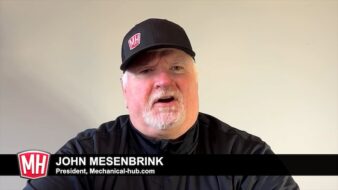 Nearly three years ago I invested in a hybrid vehicle, and after all of the smoke clears, it won’t be worth the investment. And believe me, I wanted it to work. I just don’t think the technology is quite there yet. The truth of the matter is that if I break down the math, it doesn’t come out in my favor. My hybrid vehicle is priced 33% higher than its normal catalytic counterpart. And, to achieve optimum performance out of the engine, it is suggested that I use the highest of octane fuel, which, of course, means spending more every visit to the pump. And, if I do decide to use a lower octane fuel, the mpg does decrease.
Nearly three years ago I invested in a hybrid vehicle, and after all of the smoke clears, it won’t be worth the investment. And believe me, I wanted it to work. I just don’t think the technology is quite there yet. The truth of the matter is that if I break down the math, it doesn’t come out in my favor. My hybrid vehicle is priced 33% higher than its normal catalytic counterpart. And, to achieve optimum performance out of the engine, it is suggested that I use the highest of octane fuel, which, of course, means spending more every visit to the pump. And, if I do decide to use a lower octane fuel, the mpg does decrease.
So let’s do the math (over the course of the five years):
• Hybrid Vehicle Purchase Price — $30,000
Avg. Miles Per gallon 36.5, 15-gallon tank — 547.5 miles per tank (Avg.)
(Note: The average miles per gallon for this particular hybrid differs from colder weather to warmer weather. In the late spring, summer and early fall, the car averages 38 mpg; in winter, late fall and early spring the car averages 31.5 mpg)
Premium Gas (92 octane) — $4.15/gallon
Fill-ups 3x per month.
Cost per fill-up — $62.25 x 3 = $186.75/month (1,642 miles)
Price per mile — 11 cents
Yearly cost — $186.75 x 12 = $2,241
Five-year period — $11,205 spent on fuel
• Vehicle Purchase Price (regular model) — $20,000
Avg. Miles per Gallon — 25, 15-gallon tank — 375 miles per tank (Avg.)
Regular Gas (89 octane) — $3.75/gallon
Fill-ups 4.4x per month.
Cost per fill-up — $56.25 x 4.4 = $247.50/month (1,650 miles)
Cost per mile — 15 cents
Yearly cost — $247.50 x 12 = $2,970
Five-year period — $14,850
At this rate, to start getting real return in investment, a vehicle owner would have to keep the car for nearly 12 years to break even on the purchase price. The average American consumer keeps a car for approximately five years before they invest in a new vehicle. This also doesn’t reflect the cost of regular maintenance my particular hybrid. For instance, I recently brought the car in for replacement of rear brakes and I was told that the increased maintenance costs were due to recalibrating/resetting with the hybrid’s computer system. The brake job cost 66% more than with a car getting similar work done without a hybrid system.
I’m not suggesting that hybrids aren’t an effective, alternative use for transportation, but I will tell you that the technology needs to increase, while the price of these hybrids needs to come down to make it a more palatable investment.




Join the conversation: